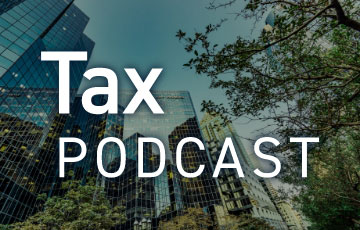The IRS has release additional information on the Superfund Excise Taxes on Chemicals. Please see links for details:
Learn more about Superfund Excise Tax changes effective July 1, 2022, including key considerations for dealings with the reinstated Superfund Tax on chemicals and substances.
The Infrastructure Investment and Jobs Act signed into law November 15, 2021, reinstated the Superfund Excise Taxes (“Superfund Tax”) on chemicals and substances. The Superfund Tax is effective as of July 1, 2022 and will remain in effect until the end of 2031. The first quarterly Superfund Tax reporting on Form 720 is due October 31, 2022. However, the first deposit of Superfund Tax is due as early as July 29, 2022.
Chemicals.
The Superfund Tax rate for chemicals range from $048 per ton for nitric acid to $9.74 per ton for Benzene. The list of 42 chemicals and their respective excise tax rates is found in Internal Revenue Code (“IRC”) §4661(b). The Superfund tax is assessed on the manufacturer or importer of these chemicals. Tax is due upon the first use or first sale of a listed chemical in the United States.
Substances.
Taxable substances are those that contain 20% or more by weight or value of one of the 42 chemicals listed in IRC §4661(b). When the Superfund tax was last applied back in 1995, a taxable substance was required to have 50% of a chemical. The Infrastructure Investment and Jobs Act lowered this threshold to 20%. The initial list of 50 taxable substances is found in IRC §4672(a)(3). In Notice 2021-66 the IRS published a list of 100 additional substances subject to the Superfund Tax. The rate of excise tax per ton is based on the amount of each chemical included in the substance. This Superfund Tax is assessed only on importers of taxable substances and is due upon the first sale or the first use after import into the United States.
Various exemptions exist for taxable chemicals. Such exemptions include methane or butane used as a fuel, chemicals used in the production of fertilizer (including nitric acid, sulfuric acid, ammonia, or methane) and substances derived from coal. In addition, exporters of chemicals and substances which were subject to the Superfund Tax can request a refund of the tax previously paid.
Key considerations for dealings with the reinstated Superfund Tax include:
- Identification of the chemical manufacturers and importers subject to the Superfund Tax. As the chemicals are taxed upon the first sale or use after import or manufacture in the United States, the importer or manufacturer is liable for the excise tax. The tax may be passed along to customers.
- For exporters, IRC §4662(e) provides for a refund of the Superfund Tax for both taxable chemicals and taxable substances that are exported. Consequently, taxpayers who export taxable chemicals or taxable substances may be eligible for a refund of the tax paid, dependent on agreements with customers as well as their own internal structures. An exporter who did not pay the initial assessment of the Superfund Tax may still be entitled to the refund if certain condition are met.
- Because of potential exemptions for butane and methane used as a fuel, taxpayers further down the supply chain need to be aware of the procedural issues affecting such chemicals. While the majority of the listed chemicals are taxable by the manufacturer or importer upon the first sale or use, butane and methane only become taxable upon the first use other than as a fuel. This could create a potential liability for downstream users such that the first company that uses the methane or butane in a manner other than as a fuel will have to report and remit the Superfund Tax.
- Excise taxes are reported on a quarterly basis on IRS Form 720, Quarterly Federal Excise Tax. Form 6627, Environmental Taxes, previously used to report the Superfund Tax, will likely be used again to report the tax owed. Form 6627 must be filed alongside Form 720 on a quarterly basis. Taxpayers with a quarterly liability greater than $2,500 will be required to make semi-monthly tax deposits of the tax.
- Notice 2022-15 provides temporary relief from the failure-to-deposit tax penalty. Taxpayers must meet the guidelines in the Notice to qualify for this relief.
- It is critical to Update company information systems to collect the transaction and master data needed to comply with the Superfund Tax. Due to the complicated nature of the tax assessments, and the detailed information required, gaps in existing systems and processes may exist. Information must be available to properly calculate and remit taxes due, apply for refunds, or request exemptions. Companies with large volumes of transactions should consider automating their tax calculation and reporting processes.
For producers, importers, exporters, and customers of businesses making and distributing identified chemicals and substances, action is needed quickly. July 1 is fast approaching and the window to prepare for compliance with the reinstated Superfund Tax is brief. It is not clear that that the IRS can offer any more relief to taxpayers than has already been given in Notice 2022-15. Consider the action items above, particularly the last one, making sure the information systems are in place to capture the data needed to comply with this tax.





